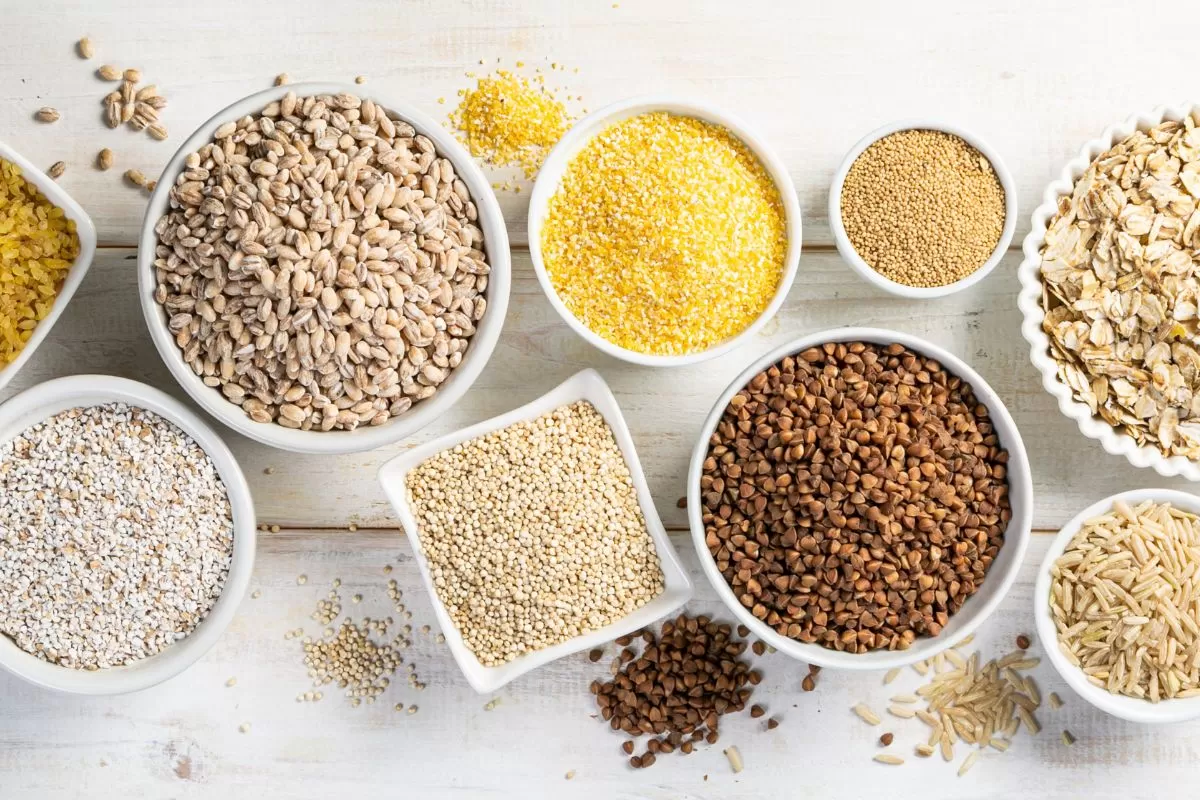Take These Grains to Reduce Cholesterol Levels
You have to take these grains to reduce cholesterol levels because when you’re aiming to lower your cholesterol, choosing whole grains is the way to go.
They’re the healthiest types of grains you can eat and can even lower your risk of heart disease, diabetes, cancer, and other health issues.
Chloe Ring, a nutritionist and dietitian from New York City, explains that one big reason why whole grains are great for lowering cholesterol is their high fiber content. Fiber is super important for your gut health and can affect how your body handles fats and cholesterol.
It’s like giving your gut a boost! Chloe mentions a study in Physiological Genomics that talks about how fiber can help with this.
Even the United States Department of Agriculture (USDA) recommends that half of the grains you eat should be whole grains. The other half can be enriched grains, but whole grains are where it’s at for keeping your heart happy.
But here’s the catch: if you’re all about whole grains, you’ve got to say goodbye to the refined stuff that’s everywhere, like white bread, white rice, and white flour.
Those refined foods might last longer on the shelf, but they’re missing out on all the good stuff like fiber, iron, and B vitamins that you find in whole grains.
Plus, whole grains have this cool thing called soluble fiber, which helps keep cholesterol from getting into your bloodstream, according to the Mayo Clinic.
YOU MAY LIKE:Benefits of Sencha Green Tea
Stacey Simon, a registered dietitian-nutritionist also from New York City, suggests starting slow if you’re new to whole grains. You can mix your favorite grain with a new one, like doing half white rice and half brown rice, and then slowly make the switch over time. It’s all about finding what works best for you and your taste buds!
Some folks might avoid grains because they believe they’re packed with carbs and don’t offer much in terms of nutrition.
However, experts argue that whole grains, unlike their refined counterparts, are actually beneficial for heart health and keeping cholesterol in check.
When we talk about whole grains, we mean grains that include all parts of the kernel, such as the fiber-rich bran and the nutrient-packed germ. Refined grains, on the other hand, are stripped of these valuable components and contain only the starchy endosperm.
Opting for whole grains means you’re getting more heart-healthy fiber, which has been shown to help lower cholesterol levels.
Don’t let the misconception about grains steer you away. Whole grains can be a valuable addition to your diet, supporting your heart health and keeping your cholesterol in check.
Studies have demonstrated that for every additional 5 grams of soluble fiber consumed, total cholesterol levels can decrease by approximately 6 milligrams per deciliter (mg/dL), while LDL cholesterol, the harmful type, can drop by about 8 mg/dL.
Furthermore, soluble fiber, when fermented by gut bacteria, produces short-chain fatty acids that inhibit cholesterol production in the liver.
Grains to Reduce Cholesterol Levels
Among the grains recommended by dietitians for their cholesterol-lowering benefits are:
Oats
Renowned for their beta-glucan content, oats are packed with heart-healthy soluble fiber that has been shown to notably reduce both total and LDL cholesterol levels in individuals with high cholesterol.
An easy way to incorporate oats into your diet is by preparing overnight oats, a convenient breakfast option that can be made ahead and stored for the week.
Opt for plain, old-fashioned oats rather than quick oats for the best consistency, and consider using gluten-free oats if needed. With endless variations, from fruity to nutty, enjoying a nutritious bowl of oatmeal each morning will keep your breakfast routine exciting and healthful.
Pasta
Despite its reputation as a culprit for unhealthy eating, pasta can actually be part of a heart-healthy diet when made from whole grains.
Whole grain pasta is rich in fiber, which helps regulate blood sugar levels and prevents spikes. Elevated blood sugar can lead to increased levels of triglycerides and cholesterol, making whole grain pasta a smart choice for maintaining cardiovascular health.
Whole-Grain Bread
When it comes to bread, opt for varieties made from whole grains like whole wheat. Unlike refined white bread, whole-grain bread retains the nutrient-rich bran and germ, which are essential for lowering cholesterol levels. Brands like Dave’s Killer Bread offer delicious and nutritious options that cater to health-conscious consumers.
Barley
This ancient grain is a powerhouse of heart-healthy benefits, thanks to its high content of beta-glucan. Barley has been revered for centuries and is mentioned numerous times in religious texts, highlighting its status as one of the earliest and most nourishing grains cultivated by humans.
Studies conducted at Montana State University have shown that incorporating barley into your diet can effectively lower cholesterol levels, making it a valuable addition to any heart-healthy meal plan.
Rice
Swap out white rice for its more nutritious counterpart, brown rice, to reap the cholesterol-lowering benefits. Brown rice is packed with fiber, which plays a crucial role in reducing LDL cholesterol levels. Additionally, it contains phytosterols, plant compounds known for their ability to lower LDL levels, further enhancing its heart-healthy properties.
By choosing brown rice over white rice, you can make a simple yet impactful change to support your cardiovascular health.
Incorporating these grains into your diet can contribute to lowering cholesterol levels and promoting overall heart health.

A graduate of Computer Science and Information Management Technology. Diploma – Caregiving, Certificates – Dementia and Diabetes Awareness and Management. A researcher, blogger, songwriter, singer and acoustic guitarist. Born in an environment where natural talents such as healing are imparted at our natural birth. This natural talents of healing is the result of our genetic inheritance and the training from family environment.























